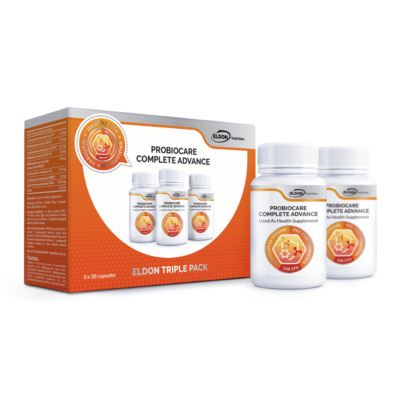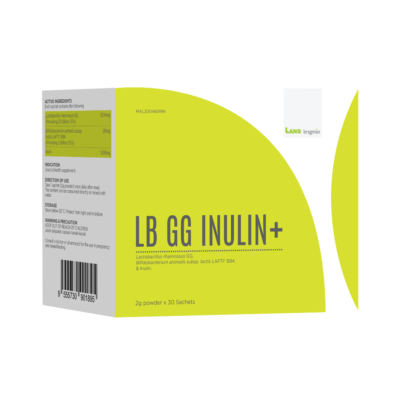This article has been professionally reviewed by RPh Lee Kern Yeung, a registered pharmacist of Malaysian Pharmacists’ Society (MPS).
Have you ever experienced digestive issues such as abdominal pain, bloating, and irregular bowel movements, often accompanied by discomfort and embarrassment? If so, you might be familiar with the frustrating symptoms of irritable bowel syndrome (IBS). This common gastrointestinal disorder can disrupt daily life, leaving individuals feeling bloated, gassy, and in pain. [1]. Kindly consult your healthcare professional for appropriate diagnosis and treatment of your condition.
While conventional treatments such as medications are commonly prescribed to manage irritable bowel syndrome, many individuals turn to natural remedies, diet and lifestyle management in search of additional or alternative ways to alleviate their symptoms.
Tip #1: Low-FODMAP Diet
The Low-FODMAP diet, which involves reducing foods high in fermentable oligosaccharides, disaccharides, monosaccharides, and polyols, has been extensively studied for IBS management. Common high-FODMAP foods include onions, garlic, wheat, and certain fruits and vegetables that should be avoided in IBS. Low-FODMAP alternatives include berries, rice, and lactose-free dairy products.

Tip #2: Incorporate Fiber Intake
Fiber is another crucial dietary component. Soluble fiber, found in foods like oats and psyllium, can help manage IBS symptoms by normalizing bowel movements [3]. While some people with IBS may find high-fiber diets exacerbating their symptoms, others may benefit from a gradual increase in fiber intake. Introducing fiber slowly allows the digestive system to adjust and can help minimize potential bloating and gas. This gradual increase also enables individuals to monitor their symptoms and adjust their fiber intake as needed [3].
Tip #3: Consider Probiotic Supplements
Probiotics help balance gut microbiota, which can be beneficial for IBS patients. However, the specific strains may vary. Among various probiotic strains, a few clinically studied probiotic strains have garnered significant attention in a meta-analysis for its potential benefits in managing IBS symptoms [4]:
- Lactobacillus rhamnosus
- Bifidobacterium infantis
- Lactobacillus plantarum
- Saccharomyces boulardii
It’s important to select a probiotic product that contains live, viable strains. Consult with a healthcare professional to determine the best probiotic for your individual needs. Here is a simple guideline on selecting the right probiotic for IBS: How Probiotics Can Make a Difference in IBS Management
Tip #4: Peppermint Oil
Peppermint oil, derived from the peppermint plant (Mentha piperita), has been used for centuries in traditional medicine for its digestive benefits. Peppermint oil is renowned for its antispasmodic properties, which can help relieve abdominal pain and cramping associated with IBS. Menthol, the primary component of peppermint oil, has a direct relaxing effect on the smooth muscles of the gastrointestinal tract. This helps to reduce the frequency and intensity of muscle spasms, which can cause abdominal pain and cramping associated with IBS. A comprehensive systematic review published in Digestive Diseases and Sciences in 2023 has shown that peppermint oil was effective in reducing IBS symptoms, including pain and bloating [5].
Tip #5: Stress Management
Stress is a well-documented trigger for irritable bowel syndrome (IBS) symptoms [6]. The mind-gut connection is a complex interplay between the brain and the digestive system, and stress can significantly trigger IBS. A randomized controlled trial in JAMA Network Open found that mindfulness-based stress reduction (MBSR) improved overall IBS symptoms and quality of life [6]. Techniques such as mindfulness, yoga, and cognitive-behavioral therapy (CBT) have shown promise in managing stress-related symptoms.
Conclusion
These approaches can provide significant relief from IBS symptoms and improve overall well-being. While natural remedies can be effective, it’s essential to consult with a healthcare professional before making significant changes to your diet or lifestyle. They can provide personalized guidance and rule out other underlying conditions.
Disclaimer: This article is for informational purposes only and does not replace professional medical advice.
References
- Saha L. (2014). Irritable bowel syndrome: pathogenesis, diagnosis, treatment, and evidence-based medicine. World journal of gastroenterology, 20(22), 6759–6773. https://doi.org/10.3748/wjg.v20.i22.6759
- Gibson, P. R., et al. (2017). FODMAPs and IBS: A systematic review. Journal of Gastroenterology and Hepatology, 32(1), 75-85.
- Quigley, E. M. M., & McFarland, L. V. (2011). “The role of fiber in the management of irritable bowel syndrome.” The American Journal of Gastroenterology, 106(8), 1555-1561.
- Lacy, B. E., et al. (2016). Systematic review of the role of dietary fiber in the management of irritable bowel syndrome. The American Journal of Gastroenterology, 111(1), 52-65
- Chen, M., Yuan, L., Xie, C. R., Wang, X. Y., Feng, S. J., Xiao, X. Y., & Zheng, H. (2023). Probiotics for the management of irritable bowel syndrome: a systematic review and three-level meta-analysis. International journal of surgery (London, England), 109(11), 3631–3647. https://doi.org/10.1097/JS9.0000000000000658
- Kline, J. M., & Simon, L. (2023). “Efficacy of Peppermint Oil in the Management of Irritable Bowel Syndrome: A Systematic Review and Meta-Analysis.” Digestive Diseases and Sciences, 68(2), 342-354. DOI:10.1007/s10620-022-07552-3
- Dahlquist, L. M., & Tolin, D. F. (2023). “Effectiveness of Mindfulness-Based Stress Reduction for Irritable Bowel Syndrome: A Randomized Controlled Trial.” JAMA Network Open, 6(1), e2228030. DOI:10.1001/jamanetworkopen.2022.28030.









